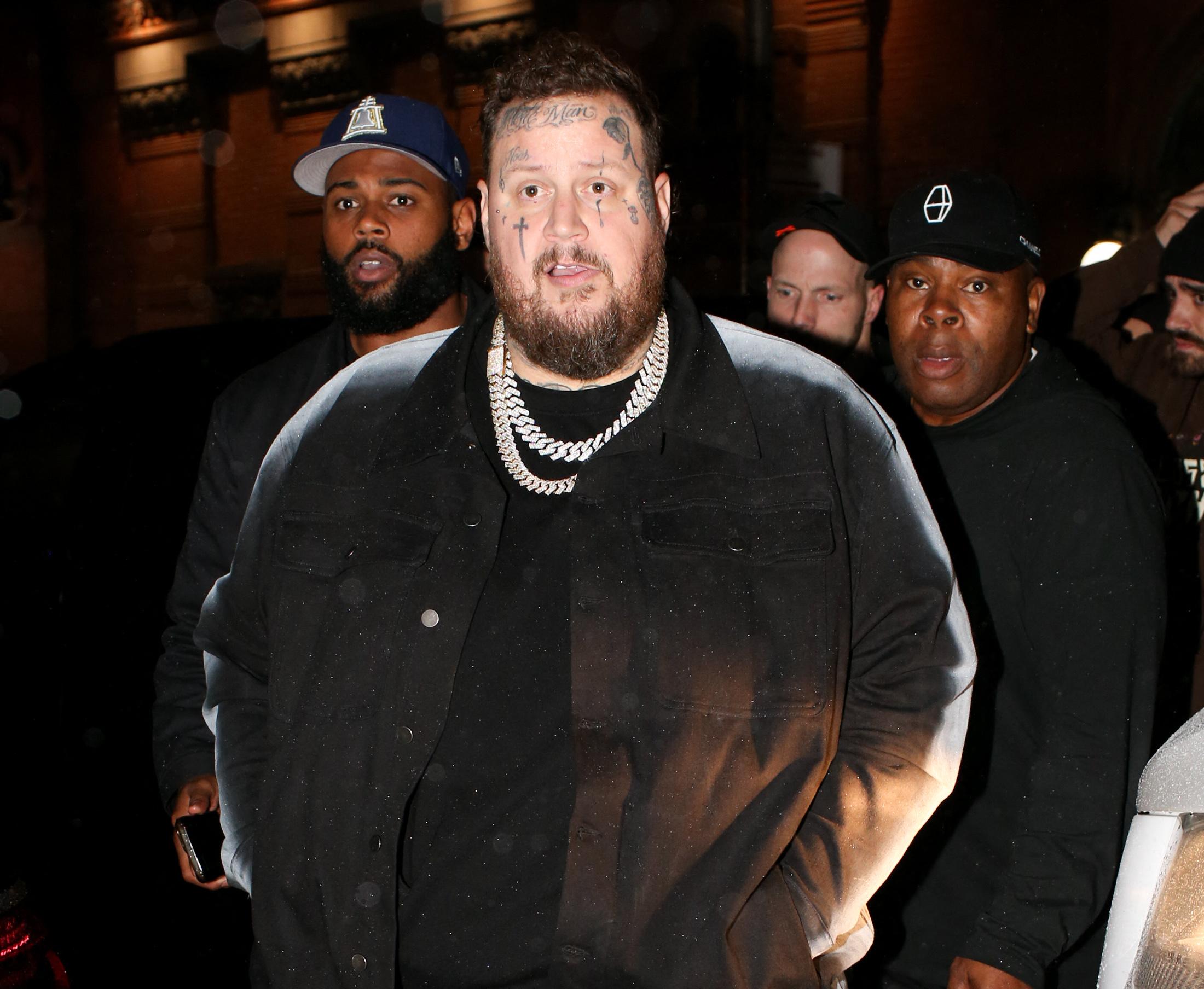Jelly Roll Reveals Early Struggles: 'Court Ordered' To Attend AA At Young Age
By Kelly Coffey-Behrens on October 12, 2024 at 12:00 PM EDT

In a candid interview, Jelly Roll -- whose real name is Jason Bradley DeFord — shared that he was "court ordered" to attend Alcoholics Anonymous at a shockingly young age.
The country-rap artist, who rose to fame with his hit song "Son Of a Sinner," opened up about his early struggles with addiction, shedding light on the challenges he faced as a teenager.
Jelly Roll also revealed that his experiences in Alcoholics Anonymous (AA) and Narcotics Anonymous (NA) served as the inspiration for his song, “I Am Not Okay.”
How Old Was Jelly Roll When He Was 'Court Ordered' To Attend AA?

Jelly Roll admitted that he was only a teenager when he was “court-ordered” to attend his first Alcoholics Anonymous meeting.
While sharing his experiences with AA and NA on Friday's episode of Sirius XM’s “The Highway,” the 39-year-old singer reflected on the challenges he faced during that time.
“Oh goodness. I don’t fully remember my first real meeting ’cause I was court-ordered at like 14," he said, per Page Six. “I don’t remember it as much as I should, but, I definitely remember the first time that I found solace in those rooms, or the first time that I kind of got introduced to the concept of this and how much stuff I’ve taken from them rooms.”
Jelly Roll Thinks Everyone Should Attend An AA Meeting At Least Once

While he was just a teen at the time, he admitted that he had “never been more inspired” than when he was “leaving an Alcoholics Anonymous meeting or a Narcotics Anonymous meeting.”
“I think everybody should experience one if you’ve never drank in your life,” Jelly continued. “I still think that there is something from it that is, you know, the good ones are like good theater. They’ll make you listen, you’ll learn, you’ll laugh and you’ll cry.”
Jelly Roll faced challenges from a young age, including family issues and the environment he grew up in. He began using substances in his teenage years, experimenting with drugs and alcohol.
Jelly Roll Opens Up About His Addiction Struggles

This is not the first time the country music singer has opened up about his sobriety. In fact, he has been open about using marijuana as a means to distance himself from harder drugs. He credits his time in AA and NA meetings for providing inspiration and support during his recovery process.
“I think a world without weed, Jelly Roll’s drinking codeine and popping Xanax and snorting cocaine again, but a world with weed, I’ll be alright,” he admitted. “I get in trouble for this, all the time, but my stance on marijuana will always be the same: I believe marijuana has helped me in so many regards, with my anxiety."
“This is a hot button topic, but, truly, marijuana has kept me sober," Jelly added.
Jelly Roll Advocates Against The Fentanyl Epidemic

Jelly Roll has also used his platform to address the fentanyl epidemic. Earlier this year, he attended a hearing called “Stopping the Flow of Fentanyl: Public Awareness and Legislative Solutions,” where he provided testimony to lawmakers in support of anti-fentanyl legislation.
“We've seen crack. We've seen cocaine. We've seen opioids. But we've never seen something that is so deadly in such small amounts that's being mixed in so many different things,” he told People Magazine. Having faced addiction himself, Jelly Roll understands the devastating impact drugs can have on a person.
He expressed deep concern that his children might fall victim to the fentanyl epidemic, which claims the lives of over 150 people in the U.S. every day.
“My daughter [Bailee Ann] will never experience the safety of experimenting with drugs,” he added. “I know that sounds crazy to say, but when I was a kid, my mother would be like, ‘You're going to try everything once. Just be safe.’”
Jelly Roll Calls for Action on the Fentanyl Epidemic

To address the ongoing issue of fentanyl, Jelly Roll believes the first step is to initiate open conversations about the problem. “I think opening conversations about some of this stuff is the beginning of healing, right?” he said. "A lot of problems we have in America is that we just don't openly talk about the sh-t that's really happening the way we should."
"It's kind of like once you break the ice and put them on the table, then can't ignore it much longer after that," he added.
Today, Jelly Roll continues to advocate for mental health and addiction awareness. He uses his platform to inspire others who may be struggling, sharing the message that recovery is possible and that seeking help is a sign of strength.